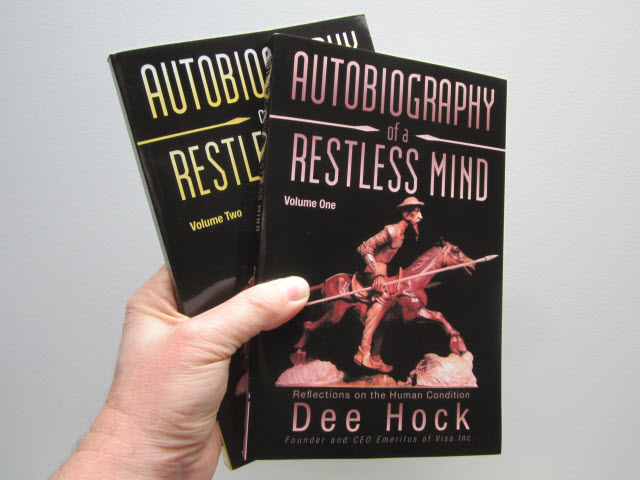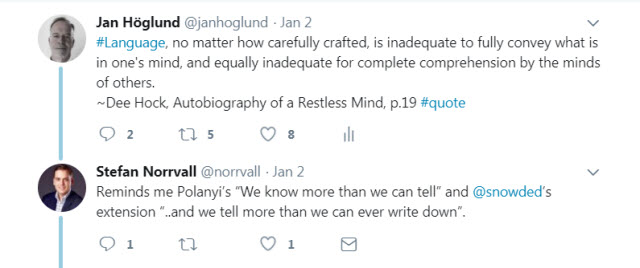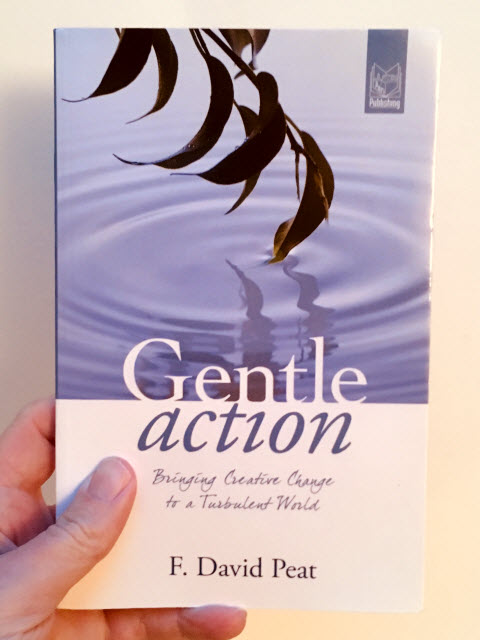This is a post in my series on organizing ”between and beyond.” Other posts are here. The purpose of this post is to reflect on subjects occupying my mind. I make no claim to fully believe what I write. Neither do I pretend that others have not already thought or written about the same subject. More often than not, I take up, combine, and add to already existing thoughts and ideas. Here is my previous reflection. Here is my next reflection.
What is on my mind?
Treasure trove of quotes
Dee Hock’s Autobiography of a Restless Mind Volume 1 & 2 are a treasure trove of quotes. I’ve now started to tweet quotes from Volume 1. I get interesting replies.

Language is inadequate to convey what is in one’s mind
Dee Hock writes that language is inadequate to fully convey what is in one’s mind.1 Stefan Norrvall (@norrvall) replied that this reminds him of Michael Polyani who said we know more than we can tell.2 Polyani stated that not only is there knowledge that cannot be adequately articulated by verbal means, but also that all knowledge is rooted in tacit knowledge.

Stefan Norrvall’s reply reminds me of Eugene T. Gendlin’s Thinking at the Edge (TAE), which is thinking from what is unclear and only a bodily sense. TAE requires familiarity with focusing. Focusing enables you live from a deeper place than just thoughts and feelings.3
New book arrived today
F. David Peat’s Gentle Action: Bringing Creative Change to a Turbulent World arrived today. Gentle action involves an initial creative suspension of action, with the aim of developing a clearer perception of the situation in hand. Out of this will flow a more appropriate and harmonious action.4 Peat’s gentle action seems related to Gendlin’s living from a deeper place.

Notes:
1 Dee Hock, Autobiography of a Restless Mind: Reflections on the Human Condition Volume 1 (iUniverse, 2012), p.19.
2 Michael Polanyi, The Tacit Dimension, (University of Chicago Press, 1996), p.4.
3 Eugene T. Gendlin, Focusing: How to Gain Direct Access to Your Body’s Knowledge (Rider, 2003, first published 1978), p.4.
4 F. David Peat, Gentle Action: Bringing Creative Change to a Turbulent World (Pari Publishing Sas, 2008), pp.16–17.
Related posts:
Book Review: Focusing by Eugene T. Gendlin
Organizing in between and beyond posts
Leave a Reply
You must be logged in to post a comment.